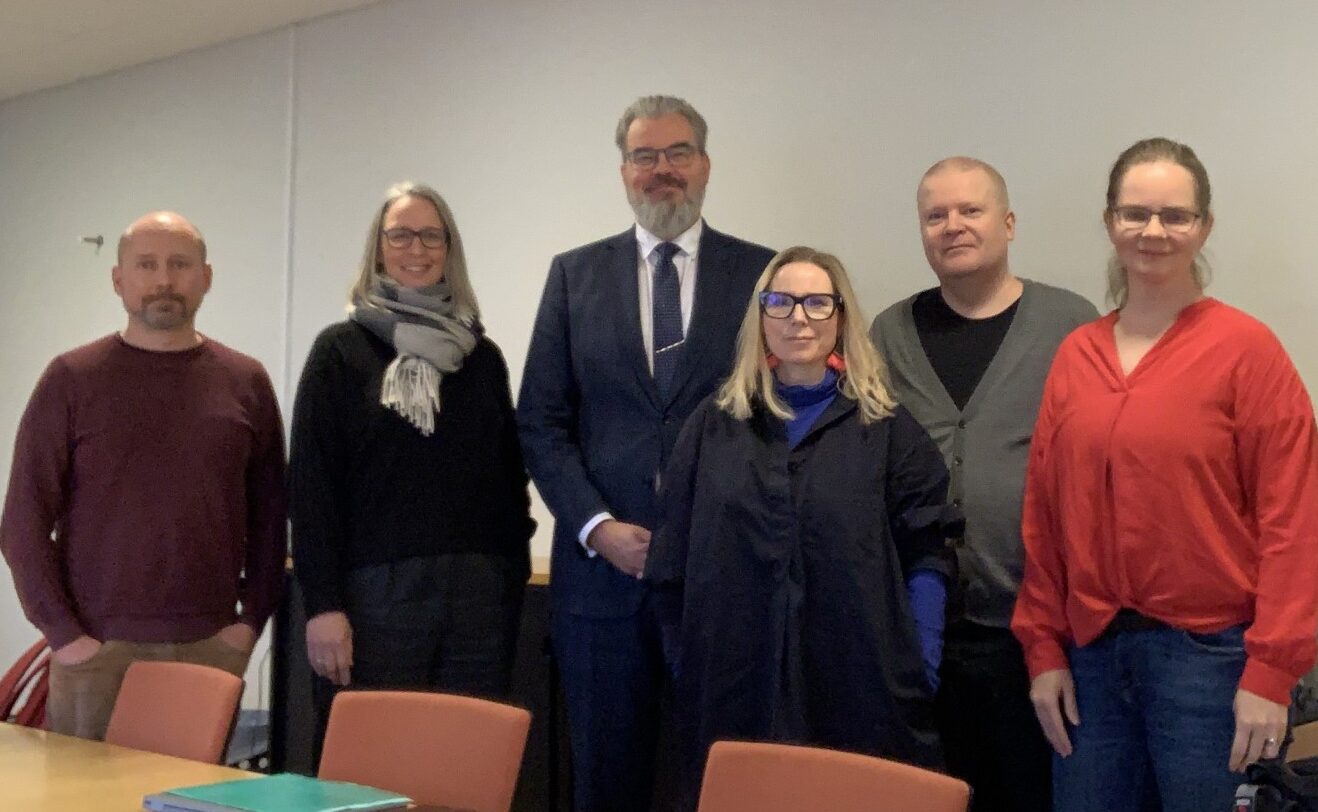Trends, ongoing research, and other topicalities in the Nordics: fall 2023
Drugs, Alcohol, Gambling, TobaccoMikaela Lindeman, editor Published 8 Nov 2023
Nordic Studies on Alcohol and Drugs arranged a meeting for its editorial board in late October, in Uppsala. PopNAD attended too and summarizes here trends and topics from all represented countries. What is the talk of the town in Sweden, Iceland, Norway, Denmark, and Finland, according to the editorial board members? Here are some points:
Sweden
On October 26th , The Swedish Drug Commission of Inquiry, headed by Dr Thomas Lindén, published it’s the Government’s Public Inquiry (so called SOU) report “We can do better! Knowledge-based drugs policy focused on life and health”. The report proposes how a continued restrictive drugs policy can be combined with effective drug prevention work, good care for harmful use and addiction and addiction issues that includes harm reduction measures, and measures to ensure that no one dies as a result of medicine and drug poisoning.
During the last months, much media attention has been on gang-related violence. Here, it’s crucial to note that narcotics don’t stand alone as an explaining factor to the increased violence but are entwined with various forms of other criminal activity. The whole problem is shaped by complex factors like employment, income, social class, integration, and a sense of belonging.
Sweden has seen a rise of consumption of new nicotine products, such as e-cigarettes and nicotine pouches. They are especially popular among young consumers, according to surveys by CAN.
In November 2023, the University of Stockholm will arrange a REGAPS gambling conference. The aim of the conference is to create a meeting place between researchers, social and health care practitioners and people experiencing problems with gambling. Another interesting conference on the horizon is in April, when Sorad will organize a Nordic research meeting on Addictive Substances and Behaviors.
Iceland
The popularity and role of state alcohol monopoly Vínbúðin has diminished during the last years, due to for example online sales- and deliveries that exist in a legal greyzone.
Iceland has also seen problematic use of new nicotine products, particularly popular among young individuals. There is also a worrisome trend of rising opioid-related mortality, especially among those aged 20 to 30. The issue of problematic gambling is also growing.
Norway
In Norway, cocaine use has become a topic of concern, especially among young people. Discussions are underway about placing warning labels on alcohol bottles and cans, but the process seem slow.
Early interventions and improved substance use detection in hospitals are priorities, alongside addressing addiction in prison populations. There is quite a bit of research on recovery-oriented approached in community services towards citizens having challenges with substance use and mental health. This includes research on recovery colleges, that has been implemented in Norway since 2019, working on the principles of cocreation between professionals and persons with lived experience.
Another emerging topic is gender dynamics in substance abuse, emphasizing gendered traumatic experiences and their impact on treatment. Furthermore, a large project in Western Norway University of Applied Sciences is looking at bereavement and overdose deaths.
Denmark
Youth drinking in Denmark hasn’t declined in a similar fashion as in the other Nordic countries. At the moment, there are attempts to introduce more preventive measures and interventions in high schools, and it seems these kinds of policy tools have become more accepted.
All the new tobacco products have made their way onto the market – age limits are seldom enforced, and we see very young consumers of e-cigarettes and nicotine pouches. Laughing gas is another newcomer on the market.
The treatment sector has raised the issue of worrying opioid use (tramadol), but that has so far not shown in other data sources and surveys. Treatment facilities have also met psychedelic-using patients as well, which is a new segment of clients.
Additionally, there have been more cocaine seizures and findings of drugs with stronger concentrations, indicating heightened harm. There’s also a growing perception of increased harm from gambling, as also a large percentage of young people engage in gambling despite age-limits.
Finland
Finland’s new government is re-shaping policies related to alcohol, gambling, and tobacco. Alcohol regulations are being liberalized through various steps, including online sales and the introduction of 8 vol. % alcohol beverages in grocery stores. The state monopoly gambling operator, Veikkaus, will be dismantled by 2026 in favor of a license-based market.
Nicotine pouches will enter the legal market, and indeed, e-cigarettes have become popular among young consumers. A concerning issue is drug overdose deaths among young people, prompting the Young despair research consortium to find solutions. A citizen initiative aims to introduce user rooms, and THL has listed 12 steps for a more sustainable drug policy. Geographical challenges are also emerging in social work due to the new service structure associated with the Social and Health Care Reform.



